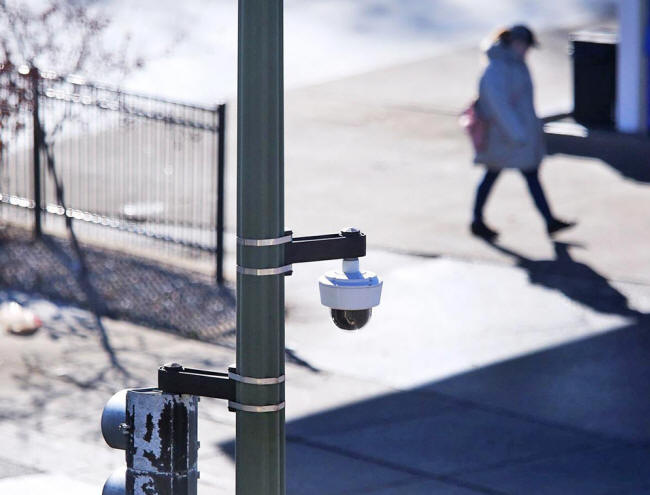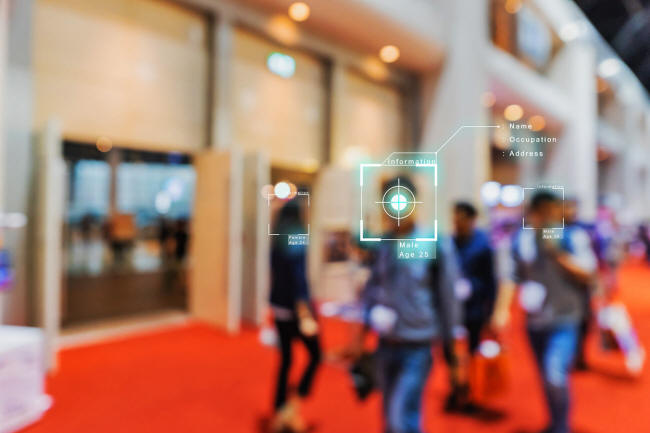|

by Fraser Sampson
August 19, 2024
from
BiometricUpdate Website
|
Fraser Sampson
former UK
Biometrics & Surveillance Camera Commissioner, is
Professor of Governance and National Security at CENTRIC
(Centre for Excellence in Terrorism, Resilience,
Intelligence & Organised Crime Research) and a
non-executive director at Facewatch. |

Last week's webinar by
Public Policy Exchange considered
the future of
CCTV (Closed-circuit television)
and related policy issues for the new Labour government.
In truth, CCTV as we know it does not have a
future and even its past is now of questionable relevance.
Looking first at its history, more than 25 years of study into the
impact of CCTV on crime generated an extensive body of evidence but
the jury has yet to reach unanimity on a verdict.
However, all of the research was undertaken when
cameras just filmed things.
Most modern surveillance devices are not cameras
anymore:
they are networked computers one basic
function of which is to capture images.
They are rarely on closed circuits and they
are not on TV.
The received wisdom on the impact of public
space surveillance took place before the camera knew who it was
looking for; before it 'knew' anything in fact.
Now the AI-driven device looking for me
knows exactly what I look like and also,
what I sound like, how I walk, what I wear,
drive or ride,
...and not just at the 'time in question' but
generally....

It knows where I have been, where I go, when
and with whom - again, not just on the night in question but
habitually.
It can communicate, it can teach and learn
from other devices, it can retrieve, combine, synthesize and
suggest and each time it looks for me it gets better at finding
everyone.
And I - the person being sought - know this too.
This is nothing like CCTV...!
As to its future, we know from retailers the
significant difference that facial recognition systems has made in
protecting their staff from assaults, abuse and harassment, reducing
incidents dramatically (sometimes >60%) when compared to
conventional in-store CCTV.
It is a reasonable hypothesis that such
intelligent devices being used by the police will have some
direct positive impact on wider crime and criminality in way that
was simply not possible or imaginable with CCTV.
Technology has also changed surveillance
behavior, both that of the police and the citizen.
Look at the first thing police forces do when
something important happens.
The police response now - not just in the UK
but in every country I have worked with - is to put out a call
for people to send in images, anything from their,
-
GoPros
-
doorbells
-
dashcams
-
anycams...
Why?
Because someone almost certainly
captured something relevant...
An increasing amount of surveillance
material on which policing relies is coming, not from cameras on
lampposts, but from the citizen.
The surveillance relationship between citizen
and state has thus shifted from a world where policing needed
images of the citizen to one where it increasingly depends on images
from the citizen.
Public space surveillance is no longer about
where the police put their cameras:
it is about what they do with the data
from everyone's cameras (and phones and other
devices)...
This is nothing like the world of CCTV...!
In the future, if it has not already,
policing is going to depend on the aggregated
surveillance capability of our communities and when that becomes
a critical dependency the new surveillance relationship is going
to matter.
People may not want share data from home devices,
particularly,
-
if they believe it will attract attention
from criminal groups
-
if they do not trust the police to use it
appropriately
-
if they simply do not know what the rules
are...
Are we going to make them share it?
How...?
Some countries have laws to do this already and I
am not sure that is the path we want to go down.
For a government seeking to regulate this new
public space reality, there is little point in partially
focusing on the diminishing few CCTV cameras operated by the police.
That would be like regulating printed newspapers
and not digital media.
After decades of looking up at adverts
trying to influence our decisions, we now find the adverts
are looking back and they are making decisions about us.
Like the CCTV cameras of old, the billboards
have evolved along with dashboards and doorbells.
So why are we still talking about 'cameras on
sticks'...?
|



